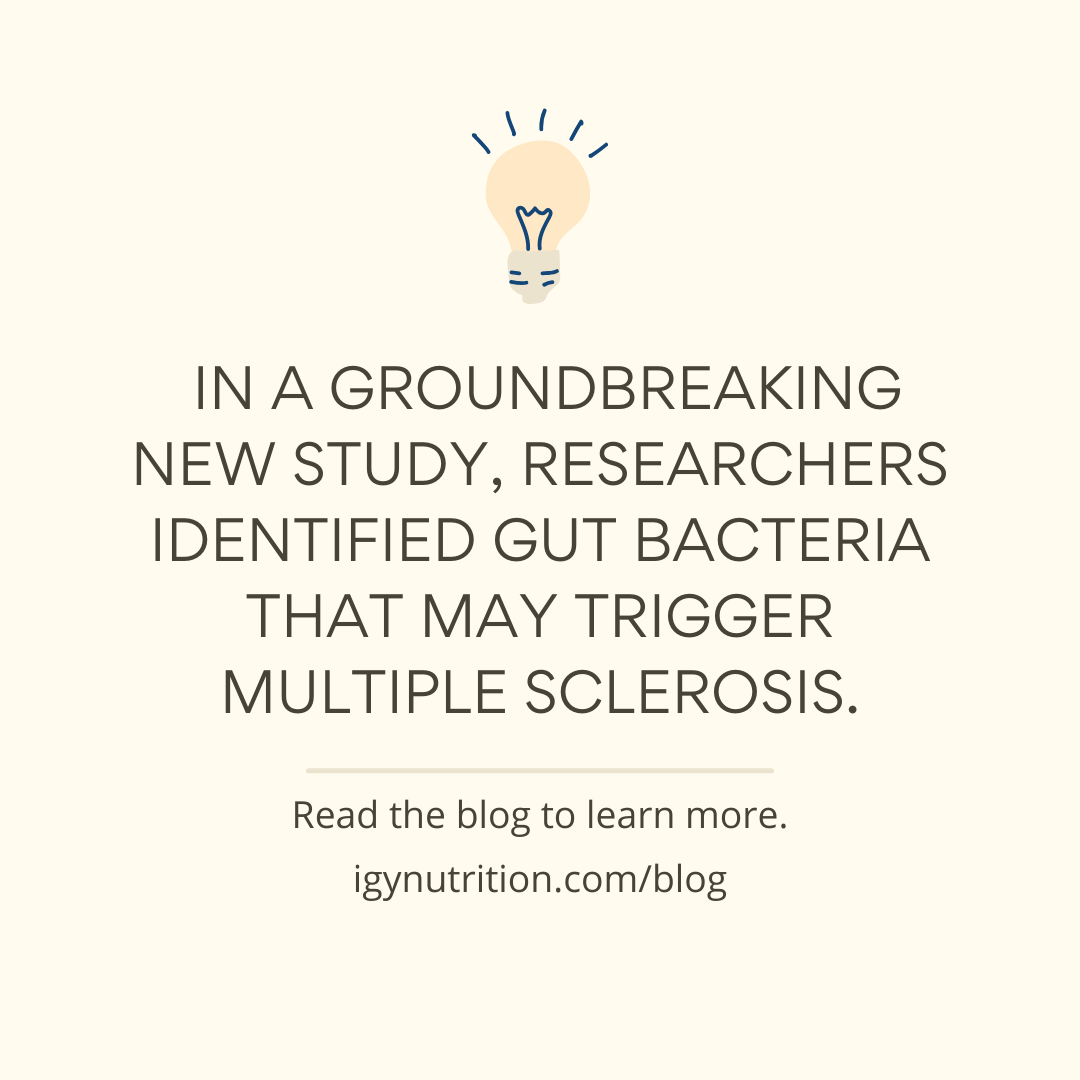A groundbreaking study published in PNAS this month has taken a significant step forward in understanding the link between gut health and multiple sclerosis (MS), a chronic autoimmune disease of the central nervous system (1). For years, researchers have suspected a role for the gut microbiome in MS, but until now, clear functional evidence has been lacking. This new research not only identifies specific gut bacteria that may trigger MS-like symptoms, but also highlights how these microbes could influence immune responses.
Read on to learn more about the gut microbiome’s role in MS.
Twins Reveal Clues: A Unique Study Design
The researchers studied monozygotic (identical) twins, where only one twin had MS. This approach minimized genetic and environmental differences that could have muddied the results. Fecal samples from 81 twin pairs revealed more than 50 bacterial taxa that differed significantly between affected and unaffected twins. But instead of stopping at observational data, the scientists went further.
From Human Gut to Mouse Model: Proving Cause, Not Just Correlation
To test whether these microbes played a role in MS, researchers introduced gut bacteria from MS-affected twins into germ-free mice genetically predisposed to develop MS-like disease. Remarkably, mice colonized with microbiota from the ileum (part of the small intestine) of MS patients developed MS-like symptoms at significantly higher rates than those colonized with microbiota from healthy twins.
Two bacterial culprits stood out: Eisenbergiella tayi and Lachnoclostridium, both members of the Lachnospiraceae family. These bacteria were not just associated with MS—they appeared to be functionally active in triggering inflammation and neurological symptoms in mice.
Why the Ileum Matters
Most microbiome studies rely on fecal samples, but this study took an extra step by sampling from different gut regions using endoscopy. The ileum, a key site for immune cell activity (especially Th17 cells), emerged as a hotspot for MS-associated microbial triggers. This suggests a need for future research to focus beyond the colon and consider the unique immune environment of the small intestine.
The Sex Difference
Interestingly, female mice were more likely to develop disease after receiving these microbiota. This echoes what we find in humans: MS is significantly more common in women. While the mechanism behind this sex difference is still unclear, the study reinforces the importance of gender in gut-immune interactions.
The Bigger Picture
This research supports the notion that gut microbes can be active agents in autoimmune disease, not just passive bystanders. If certain bacteria can trigger MS-like disease in genetically susceptible individuals, then targeting those microbes may offer a novel therapeutic path. Potential future interventions might include:
- Microbiome-targeted therapies (e.g., probiotics, antibiotics, or phage therapy)
- Diet plans designed to reduce the abundance of MS-associated bacteria
- Gut screening to identify at-risk individuals
Final Thoughts
The link between the gut and nervous system is no longer a fringe theory—it’s a growing frontier in MS research. This study is a compelling example of how gut bacteria may not just reflect disease, but drive it. By identifying specific bacteria such as Eisenbergiella tayi and Lachnoclostridium, researchers are opening the door to a future where managing MS could begin in the gut.
Stay tuned—this is only the beginning of what the microbiome may reveal.
References
- https://www.pnas.org/doi/pdf/10.1073/pnas.2419689122





Leave A Comment